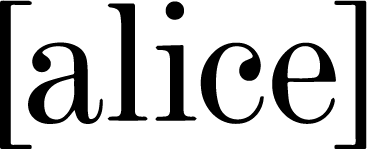By: Payton Lambert

Photo by Clay Banks on Unsplash
The world has been crazy recently, to state the obvious. Many people feel as if their world’s been turned upside down. Our day-to-day lives are completely different than just a few months ago, with stay at home orders and social distancing. Many Americans are finding quarantine life, to put it frankly, boring. However, life hasn’t slowed down for everyone, especially for our country’s health care workers.
Recent nursing school graduates already have a lot on their plate. They go from learning about diseases and health-related cases through textbook definitions, and dummy simulations in nursing school, to being responsible for the lives of living, breathing human beings who often have unique, personal diagnoses. Recent nursing graduates Clara, Ana and Catherine, who wished to remain anonymous for security reasons, shared some of their experiences and concerns with us regarding working through the pandemic.
Clara, who graduated from Auburn’s School of Nursing in May 2019 and now works in an Intensive Care Unit at a Birmingham hospital, shared that nothing can truly prepare you for the transition to the reality of working in an ICU. With that being said, hospitals go to extreme lengths to train their nurses to be able to tackle anything. While there is no real way to ease into a career like nursing, starting off your nursing career with a global pandemic isn’t exactly ideal, but this is what nurses have been prepared for.
Being a nurse fresh out of college during the coronavirus outbreak is different than being a nurse at any other time. Nurses are trained to cope with tragedy and loss, but never before have they had the added fear of their own health and safety on the line as well. Due to being constantly exposed to the virus, these new nurses often can’t go home to see family due to fears of asymptomatic spread. This is not only to protect family members from those working in the hospital but also to ensure that a family member doesn’t infect a nurse, thus further spreading the virus throughout their work environment at the hospital.
Another recent nursing school alumna, Ana, informed me just how different working now is than before the pandemic. This pandemic has truly shown the incredible strength and versatility of young nurses.
“I work in the trauma burn ICU,” Ana said. “Here I normally care for patients with burns and injuries caused from things like car accidents. Due to the great influx of COVID positive patients, our unit now has beds used for these patients. Although I am fully prepared to care for these patients, I am providing a different kind of care and treatment than I am used to.”
Going from college to starting your career is a big change for anyone, but unlike other young adults working from home or awaiting returning to work due to the pandemic, nurses are working 12 hour shifts through the day and night in fully protective gear – head to toe.
Because COVID-19 is such a new virus, there is new information emerging about it every day. As the public learns new information about the virus, so do frontline healthcare workers. They have to take new information on this ever-changing virus and turn it into practice while caring for those infected.
“The pandemic has been extremely hard to deal with. It can be chaotic one day, and normal the next. But I am grateful I get to be a part of the solution. Although challenging, and even exhausting,” Catherine said, “I wouldn’t trade my job for the world. Nursing is just about my whole life, it’s who I am, and I love it.”
Traditionally, a hero would be defined as a person who often wears a suit, fights an enemy and saves lives. This time, the suit is replaced by scrubs, the enemy is a microscopic deadly virus, and countless lives are being saved every day. Nurses work hard and save lives every day even without a pandemic raging on; it’s no wonder we’ve dubbed them “healthcare heroes.”


